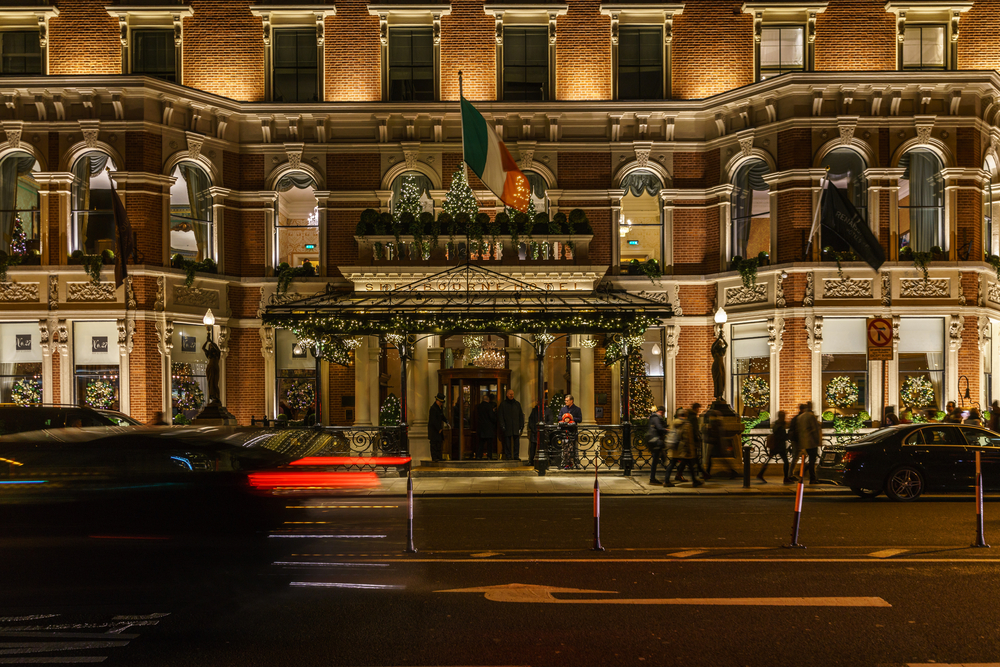From service bots to remote keys and advances in online commerce, the Covid-19 pandemic accelerated the digital transformation of the hospitality sector in Ireland, writes Gerardo Larios Rizo.
The Covid-19 pandemic has further accelerated an already enhanced rate of tech-adoption in the hospitality industry. Some “intelligent” capacities and services that might have been considered add-ons to the guest experience may soon become requirements as we come out of lockdown.
The health and safety risks of the virus combined with lockdown restrictions and the proliferation of food/drink delivery forced operators into immediate action.
“Technology like service bots, mobile keys and self-service kiosks were all being slowly embraced by the market before the pandemic. Covid-19 brought much swifter adoption of those technologies”
Up until 20 years ago managing the guest experience was mostly a person to person occurrence, technology was mostly limited to tills and reception desks; many operators historically resisted technology on the basis that the sector is based on “high touch” rather than “high tech”. Human interactions are still an essential component, but with the incredible growth of the internet, smartphones and an “always-on” lifestyle, people are no longer willing to wait very long for their desired outcome.
Digital transformation
Technology like service bots, mobile keys and self-service kiosks were all being slowly embraced by the market before the pandemic. Covid-19 brought much swifter adoption of those technologies, motivated by a combination of safety requirements and a change in consumer behaviour and expectations. Now that we have online check-in, mobile keys, and other mobile services in place, there are also platforms to collate this information which can be used to personalize the customer experience. Technology also allowed many hotels, bars and restaurants to keep their teams engaged during the lockdown through the use of e-learning platforms that are likely to become more prevalent in the future particularly as operators are constantly looking to improve on staff satisfaction and retention.
Over the next five years, the government will drive a step change in the adoption of digital and other new technologies by Irish businesses, as a critical driver of enterprise productivity and competitive advantage as indicated In the National Recovery and Resilience Plan.
Separately, Fáilte Ireland is in the process of developing proposed supports to enhance online trading and digitalisation across the tourism and hospitality sector in the medium term. Property management and point of sale systems.
Integrated online booking platforms can not only reduce the administration burden for staff but also improve the customer journey, particularly as bookings over smartphones are becoming the norm rather than the exception.
Booking systems are frequently integrated to the Property Management/ Point of sales systems which reduce the possibility of human error when taking down reservations.
Further integration to Customer relationship management (CRM) systems can prompt reminders like food allergies, birthdays, anniversaries, etc. For larger operations like hotels, the booking technology can be integrated to other platforms that allow for the booking of food and beverage services, to request assistance or to get a notification that the room is cleaned/ready for check-in. The systems can also support the back of house allowing for better use of resources in housekeeping, help with maintenance logs and control of inventories among other things.
Payroll
As with any other customer facing sector, wages are among the biggest costs for the hospitality businesses. Historically the sector had already embraced a number of solutions like biometric technology “Time Point” for signing in and out of shifts but more recently these technologies have been integrated with software technology like “Alkimii” used by groups like Dalata, which can in turn be integrated to other systems to deliver “predictive payroll management”.
Stocks/Purchasing
Food, beverage, crockery, laundry, cleaning products and other stocks are an expensive resource for the sector that ideally should be closely monitored and managed. A number of stock control and purchasing systems like “Procure Wizard” have been embraced by hotels, bars and restaurants moving away from spreadsheets to more intelligent and comprehensive systems. From ordering to invoice processing and payments these systems save time on a number of tedious tasks.
Loyalty programmes
The Covid-19 disrupted market will present opportunities to new products and services and open the door to new entrants into the market looking to capitalise on the displaced demand.
The analysis of information collected across different platforms can allow for more appropriate/tailored offers to repeat/loyal customers.
Further integration to CRM platforms can then allow for uniquely tailored customer experiences.
Online Food/Drink
With on-premises customers staying away, a trend amplified by the pandemic, more and more venues are entering the online food delivery market; online food delivery orders have grown by over 40pc in the past five years in the UK3.
There are a number of technology options for connecting with customers online, either directly or through delivery platforms such as “Deliveroo” and “Just Eat” which can have menus available online within days.
The online food market moves fast and artificial intelligence solutions integrated to point of sales systems can help operators to optimise their menu offering.
Security
The more that guests are able to be tracked and recognized, the greater the obligation to keep their data safe.
Most hotel owners have invested in physical safety with sanitation stations, touch-free technology, outside seating, and layouts that promote social distancing.
Cyber security is perhaps an equally urgent priority as we’ve seen recently from the rising number of ransomware attacks.
These insights were published as part of a Bank of Ireland Sectors report on the Acceleration of Technology. Full report:





